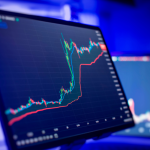Navigating the Financial Markets: A Guide for Forex and Stock Traders
In this complex environment, traders must be familiar with all aspects such as economic data, handling risks, and market analysis to make wise choices. The ever-changing nature of the financial markets necessitates constant learning and adjustment due to the market’s extreme volatility. Proficient traders often blend both fundamental and technical analysis to offer a comprehensive understanding of potential opportunities and hazards. Keeping up to date with geopolitical and global economic developments is also crucial because they have a big influence on market patterns. As we go into the details of forex and stock traders, we’ll examine the unique traits, approaches, and factors in each, that enable traders to make wise decisions in their quest for financial gain.
Knowing How to Trade Forex
To profit from the ongoing changes in the exchange rates and take advantage of currency volatility, traders, investors, and financial institutions engage in forex/equity trading. Since over-the-counter (OTC) transactions occur electronically, the decentralised nature of the FX market precludes it from having a physical location. Major currency pairs that are dominant in the market, such the EUR/USD and GBP/USD, offer plenty of options for investing and speculation. In addition, the currency market is dynamic and sensitive to a wide range of factors, such as economic statistics, geopolitical developments, and central bank policies. As a result, traders frequently use technical and fundamental studies to effectively tackle the complexity of the foreign currency market and make accurate judgements.
Application and Risk Control
In Forex trading, leverage is a double-edged sword. It increases possible losses but also gives traders more control over more extensive holdings with less capital. To lessen the effects of unfavourable market fluctuations, effective risk management is essential. To safeguard their capital, traders should decide on the right position size and place stop-losses.
Exchange Costs and Pairs of Currencies
Currency quotes in Forex trading are given in pairs, for example, EUR/USD (Euro/US Dollar) or USD/JPY (US Dollar/Japanese Yen). In a pair, the base currency is the first one, and the currency of the quote is the second. Exchange rates show how much one currency is worth with another. By accurately forecasting the direction in which currency rates will move, traders hope to make money.
Knowing How to Trade Stocks
The dynamic process of purchasing and disposing of publicly traded company shares via stock exchanges is known as stock trading. With the help of this intriguing financial activity, investors can take an active role in the ownership structure of a firm, giving them the ability to vote and even earn dividends. In the stock market, where supply and demand determine prices, investors’ sentiment and market dynamics also play a role. Exchange-traded funds (ETFs) and other financial products that track market indices or specific sectors can be traded by investors in addition to individual stocks. To trade stocks successfully, one must frequently possess a thorough awareness of economic indicators, company fundamentals, and market trends. This will enable investors to navigate the ever-shifting stock market environment and make wise selections.
Theory and Application
By analysing variables like sales, earnings, and economic indicators, traders utilise fundamental analysis to assess a company’s financial health. In contrast, technical analysis examines past market data and price charts to find patterns and possible entry or exit points. A trader’s ability to make decisions can be improved by using a balanced strategy that takes into account both analyses.
Equities And Stock Markets
Exchangessuch as the New York Stock Exchange (NYSE) or NASDAQ, allow traders to purchase and sell equities. Several variables, such as market mood, business success, and economic conditions, affect the price of these stocks.
Shared Values for Stock and Forex Investor
Construct a Trading Strategy
A trader’s aims, approach, and risk tolerance are all outlined in a clear trading plan. It acts as a road map, guiding merchants towards thoughtful choices and away from impulsive acts. Follow the plan and make adjustments based on your own experience and the state of the market.
Learning and Lifelong Learning
A strong foundation in technical analysis, risk management, and market fundamentals is necessary for successful trading. To be informed of market trends, economic indicators, and geopolitical events is crucial, as these may have an impact on the stock market.Investors must dedicate time for education.
Take Risk Management Seriously
Capital preservation is crucial when trading. Use risk-reduction techniques, including diversifying your holdings, placing stop-losses, and staying away from excessive leverage. Maintaining a long trading career and preventing large losses are two benefits of proper risk management.
Keep Up with News and Examine Market Conditions
Making educated trading choices requires having a thorough understanding of news, market emotions, and global economic developments. Analyse market conditions often, and modify your tactics as necessary. Having access to real-time information is now simpler than ever thanks to technology and internet resources.
To Sum Up
Smart thinking and understanding are all necessary for effectively dealing with the financial markets, be it stocks or Forex. Trading professionals may set themselves up for success in this fast-paced and demanding market by being aware of the particulars of each market, using appropriate risk management, and remaining informed. To stay ahead of the always-changing financial markets, keep in mind that effective trading is a journey rather than a destination and that you must never stop learning.





